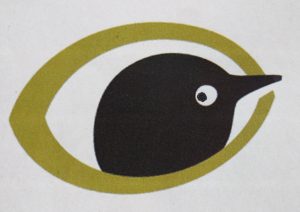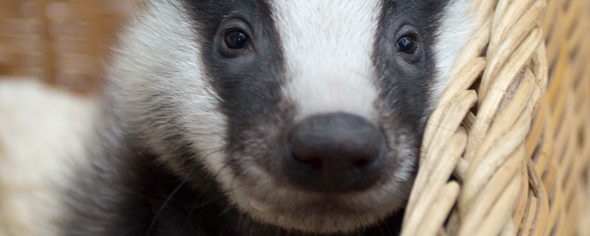
British Trust for Ornithology (BTO) opens up about its ‘secret’ work for Natural England.
Gavin Siriwardena, a BTO ecologist, has been writing online about his experience of working with Natural England (NE). Please see the third comment below the guest piece by Dominic Woodfield on Mark Avery’s blog here. He writes regarding the prolonged suppression of the release of a BTO scientific report, paid for with public funds, that contained a flawed analysis. He helped prepare this report in 2018, with others, for Natural England. A published version was not released until 2021 when the 2018 version was suddenly labelled as a draft, despite not being cited as such before in official documents used for decision making. This report was a promised outcome of a legal case pointing out lack of attention to ecological protection from the effects of mass-killing badgers on sensitive nature reserves.
Why was the initial 2018 report suppressed? Turns out that yet again, government funded work surrounding bovine TB eradication and badger culling has been cloaked in secrecy and hampered by error. In this case the mistakes were rendered inconsequential, but only because the design of the study was so scant and unconvincing that it made the results ‘low inference’, and the exercise not fit for purpose anyway. Perhaps NE did not want to expose the mistakes, how poor an effort it was, and that they were using it to justify decision making to meet the expectations of a High Court judge. It was, after all, one of their main defences from legal challenge, having promised the court to look carefully at badger cull impacts. However, in exposing these problems the BTO employee has revealed a lot about the situation regarding a further, similar legal case on biodiversity protection that goes to court this month. Here are some of his remarks and some thoughts on those remarks:
“Badgers are a top predator in the UK today and are also ecosystem engineers to some extent. Changes in their numbers are certain to have some effect on some other animals and plants, some of which may be biologically significant. “
Natural England’s previous defence in court was that effects are uncertain, and avoidance or mitigation is in general “ultra-precautionary”. Not the case now it seems.
“The analyses were limited by scale and context: this was not an experiment and cull areas are likely to have differed systematically in land-use from non-cull areas, added to which sample sizes were small. “
But NE relied on the BTO 2018 report in court. Gavin S acknowledges it is fraught with limitations, yet it remains the only action NE are taking. Disgraceful?
“However, there was a misunderstanding within the project team and a filter for inclusion of species was set at 30 square-year combinations, as opposed to 30 unique squares, and this was reported incorrectly in the report.”
Although NE used this non-peer-reviewed (at the time of use) analysis in their legal case, it contained mistakes that changed conclusions regarding many species.
“I sympathise with the view that policy should not be made on the basis of reports before they have been improved by peer-review, but I also sympathise with policymakers who may not have time to wait for the process to be completed. “
So BTO feels sympathy for policy rested on inconclusive work – not such a good idea to say this really?
“We could only analyse the species for which we had enough data, which inevitable biased the work towards more common species. “
Limitations to the data make the analyses worthless for many of the cohorts of scarcer species for which impacts are most likely to be significant in conservation terms.
“Monitoring therefore remains critical and we will continue to investigate the cull’s effects on birds where we can. “
We are in agreement that a proper monitoring scheme to look specifically at this issue is needed. Despite this, it appears the BTO is planning to repeat their previous dubious exercise with another year’s data, even though it is inherently non-conclusive/low inference by design. Is this just because they are being asked to do so by Natural England and the (taxpayers) money is just too good to refuse?
So, what do we make of all this? A BTO scientist appear to agree with us that there is/was a need to monitor the ecological impacts of badger culling properly. They say they did what they could with low-powered subsets of volunteer data. They admit that they made mistakes in the analyses of these data . Natural England used the error-infected study as evidence in a Judicial Review. A later process of peer review found the mistakes. NE and BTO declined to release the original report to their supporters and interested parties, or to confirm what they were doing with the BTO data. The report was submitted for publication as a peer reviewed paper but rejected on the grounds that the science was weak. They submit the report to BTO’s own journal. It is accepted for publication but conveniently not published until it is too late for it to be subject to legal scrutiny. Pretty stinky?
As others have said, this is not a good look for BTO and is damaging to its reputation for independence, scientific integrity and impartiality. Do NE, on the other hand, care that much? What has been said by a BTO scientist in the Mark Avery online comment is useful. Very useful in showing the world how Defra and Natural England find ways to sidestep the necessary ‘due regard’ of the impacts of Government policy on the natural world. To deliver what their political masters want and to pick up the rewards for doing so.
You can donate towards the legal costs of opposing the flawed policy here:
Thank You.
Discover more from The Badger Crowd - standing up for badgers
Subscribe to get the latest posts sent to your email.

